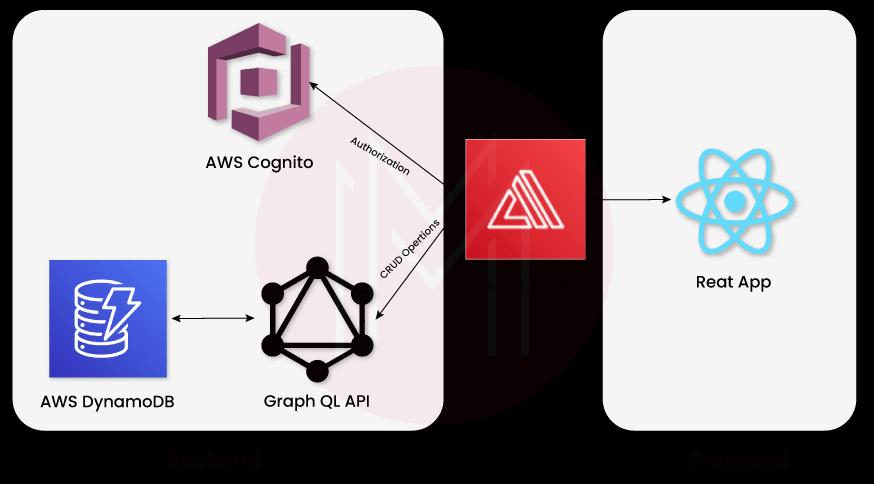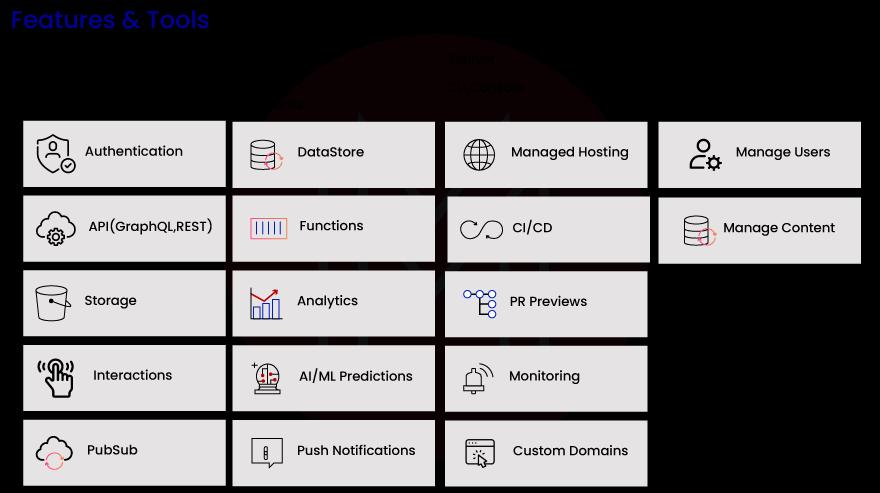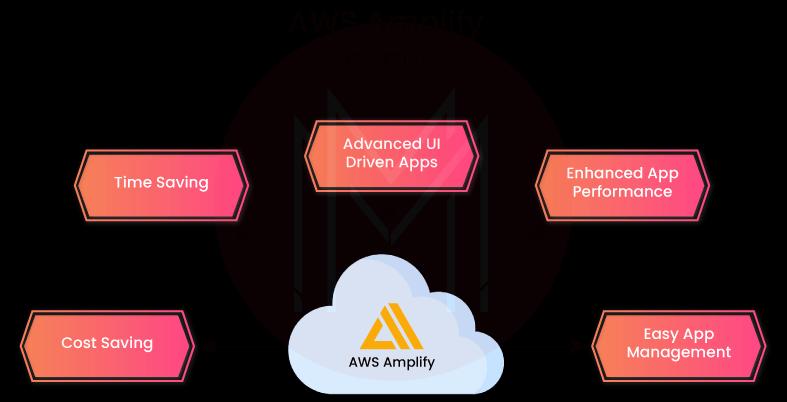- Introduction to Amazon Elastic File System
- Amazon On-Demand Instance Pricing
- AWS Kinesis
- Amazon Redshift Tutorial
- Amazon SageMaker - AIs Next Game Changer
- AWS Console - Amazon Web Services
- AWS Architect Interview Questions
- AWS Architecture
- Amazon Athena
- Top 11 AWS Certifications List and Exam Learning Path
- How to Create Alarms in Amazon CloudWatch
- AWS CloudWatch Tutorial
- Introduction To AWS CLI
- AWS Configuration
- AWS Data Pipeline Documentation
- AWS EC2 Instance Types
- AWS Elastic Beanstalk
- AWS Elastic Beanstalk Available in AWS GovCloud (US)
- AWS Free Tier Limits and Faq
- AWS EC2 Instance Pricing
- Choosing The Right EC2 Instance Type For Your Application
- AWS Interview Questions And Answers
- AWS Key Management Service
- AWS Lambda Interview Questions
- AWS Lambda Tutorial
- What Is AWS Management Console?
- Complete AWS Marketplace User Guide
- AWS Outage
- AWS Reserved Instances
- AWS SDK
- What is AWS SNS?
- AWS Simple Queue Service
- AWS SysOps Interview Questions
- AWS vs Azure
- AWS Vs Azure Vs Google Cloud Free Tier
- Introduction to AWS Pricing
- Brief Introduction to Amazon Web Services (AWS)
- Clean Up Process in AWS
- Creating a Custom AMI in AWS
- Creating an Elastic Load Balancer in AWS
- How to Deploy Your Web Application into AWS
- How to Launch Amazon EC2 Instance Using AMI?
- How to Launch Amazon EC2 Instances Using Auto Scaling
- How to Sign Up for the AWS Service?
- How to Update Your Amazon EC2 Security Group
- Process of Installing the Command Line Tools in AWS
- Big Data in AWS
- Earning Big Money With AWS Certification
- AWS Certification Without IT Experience. Is It Possible?
- How to deploy a Java enterprise application to AWS cloud
- What is AWS Lambda?
- Top 10 Reasons To Learn AWS
- Run a Controlled Deploy With AWS Elastic Beanstalk
- Apache Spark Clusters on Amazon EC2
- Top 30 AWS Services List in 2024
- What is Amazon S3? A Complete AWS S3 Tutorial
- What is AMI in AWS
- What is AWS? Amazon Web Services Introduction
- What is AWS Elasticsearch?
- What is AWS ELB? – A Complete AWS Load Balancer Tutorial
- What is AWS Glue?
- AWS IAM (Identity and Access Management)
- AWS IoT Core Tutorial - What is AWS IoT?
- What is Cloud Computing - Introduction to Cloud Computing
- Why AWS Has Gained Popularity?
- Top 10 Cloud Computing Tools
- AWS Glue Tutorial
- AWS Glue Interview Questions
- AWS S3 Interview Questions
- AWS Projects and Use Cases
- AWS VPC Interview Questions and Answers
- AWS EC2 Tutorial
- AWS VPC Tutorial
- AWS EC2 Interview Questions
- AWS DynamoDB Interview Questions
- AWS API Gateway Interview Questions
- How to Become a Big Data Engineer
- What is AWS Fargate?
- What is AWS CloudFront
- AWS CloudWatch Interview Questions
- What is AWS CloudFormation?
- What is AWS Cloudformation
- Cloud Computing Interview Questions
- What is AWS Batch
- Types of Cloud Computing - Cloud Services
- AWS DevOps Tutorial - A Complete Guide
- What is AWS SageMaker - AWS SageMaker Tutorial
- Amazon Interview Questions
- AWS DevOps Interview Questions
- Cognizant Interview Questions
- Cognizant Genc Interview Questions
- Nutanix Interview Questions
- Cloud Computing Projects and Use Cases
- test info
Most organizations today have shifted to cloud computing and are prepared to take a chance. Everyone knows that Amazon Web Options (AWS) is the largest cloud computing platform and is frequently considered the best among the many cloud adoption services currently available.
- AWS Amplify is a collection of tools and services initially released toward the end of 2017 to make it simpler for developers to create and launch applications on Amazon Web Services (AWS).
- You can create a wide range of functionalities, from API to AI, rapidly and reliably using AWS Amplify.
What is AWS Amplify?
AWS is a full-stack platform built to help mobile and web developer apps hosted by AWS that are both scalable and full-stack. It is a more flexible option that is easier to scale and offers more functionality and simple management in the best way possible.
With the AWS amplify platform's extensive set of tools and services, customers can quickly and easily build backends, deploy static web apps, link applications, and manage content in places outside of the AWS control panel. The AWS Amplify toolkit is a robust set of resources used to build cloud-native, full-stack apps. Using it, programmers may quickly prepare programs for testing and release into production with minimum attention to procedural detail.

How Does AWS Amplify Work?
AWS Amplify is a JavaScript library that Amazon Web Services offers. It lets you build and deploy serverless applications in the cloud (AWS). It is a full-stack application platform that uses code from both the client and server sides.
The application development lifecycle management is a team effort involving all of these different components. An overview of each AWS Amplify component is presented as follows
- Libraries: The AWS cloud services can be connected to, integrated, and interacted with using this component. The library makes it simple to incorporate a wide variety of features into your applications, including file storage, analytics, secure authentication, data storage, push notifications, serverless APIs, augmented reality and virtual reality, and more.
- UI: These are prebuilt UI components designed with your application's cloud workflows in mind and even include the authentication higher-order component.
- CLI Toolchain: This final component aids in the scaling of your application. You can quickly and easily adjust your AWS-managed infrastructure with the help of simple CLI commands if you ever need to add new cloud services and capabilities.
| Want to become a Certified AWS Professional? Visit here to learn about AWS Certification Training |
What's Included in AWS Amplify?
AWS Amplify provides many open-source libraries and user interface (UI) components that developers can drag and drop into place. These can be used to construct apps. It also has a command line interface (CLI) for creating your own backend. Furthermore, for an additional cost, the AWS Amplify Console may host the website for your application.
AWS Amplify includes the following components
- Analytics: Monitor users' sessions and generate reports on their actions. Create your own unique attributes, then analyze conversion funnels.
- Authentication: Get access to prebuilt workflows for things like multi-factor authentication, single sign-on, forgetting your password, and more.
- Data storage: Maintain synchronization between your application's data and the cloud, take control of your distributed data, and manage subscriptions and messaging.
- Push notifications: You'll have an easy time managing your campaigns and communicating with your users using a variety of channels, such as text, email, and push notifications.
What are the Features of AWS Amplify?
AWS Amplify makes it possible to construct various apps, including Android, iOS, Flutter, React Native, Vue, and React, that can easily interface with AWS services using the AWS Amplify framework.
Know some of the most popular options for web hosting that AWS Amplify has right now
- Authentication: With AWS Amplify's pre-made sign-up, sign-in, forgotten password, and multi-factor authorization procedures, you can set up a user directory and onboarding flow quickly and easily. Signing in is possible through Facebook, Google+, and Amazon Prime. Amazon Cognito also shines when it comes to making mobile and online apps safer.
- Data store: Amplify is a feature of AWS's datastore that lets you use shared and distributed data without writing separate code for online and offline situations. The result is that data can be shared between users and places while still being as easy to use as local data.
- Machine Learning and AI Requirements: AWS Amplify is very useful for machine learning and artificial intelligence needs because Amazon Machine Learning services like Amazon SageMaker power it. Developing use cases for text translation, text-to-speech, interpretation, and transcription is easy. Also, it makes it easier to organize complex use cases, like uploading photos for automated training, in a streamlined way
- Analytics: With the help of AWS Amplify, you can set up auto-tracking, which lets you track user sessions and web page metrics for analysis. By getting real-time data streams and analyzing them, you can make strong marketing plans that make it easier for clients to sign up, stay engaged, and stick with your business. Amazon Pinpoint and Amazon Kinesis are the two services that give Amplify this ability.
- Storage: You may now safely store and manage user-generated content, such as images and videos, on your device or in the cloud with the assistance of Amplify, depending on which option is more convenient for you. Examples of this type of material include photos and movies. It provides a simple approach for managing user material in any of the three storage buckets that can be used: protected, public, or private.

Benefits of AWS Amplify
You might wonder why we should use AWS Amplify when we can independently code the backend. Amplify from Amazon Web Services is designed for users who wish to avoid setting backends or building components from scratch. Amplify from Amazon Web Services offers many advantages.
You can find a list of AWS Amplify Benefits below.
- Simple to set up: The amplify console can host single-page web applications and static websites that use Git-based workflow. Connect the application's repository to the console to deploy.
- Quick configuration of backends: To build up the AWS backend with a scalable setup, we can utilize Amplify's admin interface in conjunction with the CLI's intuitive workflow. This backend deals with authentication, storage, data, and frequent use cases.
- Simple content management: The ability to grant administrative access to those who are not developers so they can manage app content and make changes without needing to set up an AWS account is the most significant advantage of Amplify's admin interface.
- Simple front-end integration: Through the Amplify libraries, we can connect to brand-new or pre-existing AWS services with a significantly reduced number of lines of code.

How Does Amplify Integrate with Other AWS Services?
AWS Amplify is in charge of making sure that CLI Toolchains, cloud-connected workflows, and code libraries have user interface elements. These libraries can be used together or separately to connect to other AWS Services without changing the user interface of an existing application.
To make things easier, you only need to add a few lines of code to an existing front-end application to connect it to Amplify.
When an actual front-end application is used with AWS Amplify, the amplify toolchain can be used for a few things, such as regenerating all resources.
Which Frameworks are Responsible for Amplifying Support?
AWS Amplify was made to work with all applications because it works with almost all of the most common platforms and frameworks used in mobile and web environments.
Here is a list of the parts of amplify's foundational framework and platform
#1. For Web Applications
- Angular
- Next.js
- React
- Vue
- Javascript
#2. For Mobile Applications
- iOS
- Ionic
- Android
- Flutter
- React Native
How Much Does AWS Amplify Cost?
The Amplify framework is free to use and has many libraries, components, and other things. You will only have to pay for the services you use to build and deploy your app.
For example, if you use S3 for storage and then add an Amplify storage module, you will only have to pay the standard S3 fees.
With AWS Amplify, a free tier can be used for build/deployment and web hosting for a year (with certain limitations). After that, the AWS Amplify costs for build and deployment are $0.01 per build minute, $0.023 per GB of storage per month, and $0.15 per GB served.
AWS Amplify Pricing
The following is the AWS amplified pricing structure that is included with the AWS family
- Free Tier: This was one of the first payment options, and the time it covers is sometimes called the one-year trial period.
- Pay As you Go Model: After the first year, the free tier will change to a "pay-as-you-go" model, which means you will start being charged for the resources you use.
The AWS Amplify prices of the individual services included in the pay-as-you-go plan are as follows
- The AWS framework's libraries and components can be downloaded for free. The good news is that you will only need to pay for the services you use to build and deploy your app. For instance, if you choose to use S3 as your storage type for Amplify, you will be responsible for paying nothing more than the standard S3 rates.
- The AWS Amplify free tier is helpful for app creation, hosting, and deployment, and it may be used for an entire year with a few constraints. However, there are also some limitations. After that, you will be required to pay $0.01 per minute to develop, $0.023 per GB of storage monthly, and the cost will drop to merely $0.15 for every GB used up.
AWS Amplify Alternatives
Many AWS amplify alternatives can offer comparable functions with various features. Look into the top AWS Amplify alternatives for people who wish to explore new solutions or require new software capabilities. User data is another crucial aspect to consider while looking into alternatives to AWS Amplify.
The following are some of the top AWS Amplify alternatives that you should know about
#1. Backendless
- Backend is one of the top backends as a service platform, allowing for quick and simple app development.
- Advanced security mechanisms, user authentication, caching, real-time database reallocation, logging, and simple user management are some of its many valuable features.
#2. Azure Mobile Apps
- Azure is an alternative to AWS Amplify, providing the instant services and features necessary for application development. Because Microsoft is the one who provides it, the reliability and credibility of this situation are both incredible.
- Developing applications will be sped up and simplified using Azure, and your applications' management will be simpler than ever before.
#3. Firebase
- Firebase, widely regarded as one of the most potent platforms for developing software applications, has enjoyed Google's support since 2014.
- The Google Firebase feature set includes a wide variety of components, some of which are file storage, application programming interfaces (APIs), cloud hosting, intelligent analytics, and real-time databases.
#4. DronaHQ
- DronaHQ is an app creation platform for internal tools, admin panels, dashboards, bespoke applications, portals, approval queues, automation, and database apps.
- The platform's rich ecosystem of intuitive visual builders, code editors, online databases, configurable workflows, prebuilt template marketplace, automation builder, database connectors, triggers, analytics, ready connectors, API connectors, and more allows for the delivery of multi-experience output (Mobile & Web).
#5. Oracle Mobile Hub
- Oracle Mobile Hub is a great mobile solution providing improved possibilities for rapidly constructing, managing, and deploying mobile applications.
- In addition, it can connect the application to real-time databases and third-party systems whenever the need arises.
#6. Back4app
- Back4app is undoubtedly one of the most intriguing and high-quality free platforms for developing mobile and online apps.
- Email notifications, GraphQL and REST API, real-time databases, cross-platform SDKs, geo searches, and other capabilities are included in this AWS backend service solution.
#7. Parse
- Parse is the most well-known and often-used backend development platform today.
- It is well-known for making the development process quick, easy, and simple. Using Parse, you may complete a day's worth of work in a few hours.
- Additionally, it offers advantages like faster development and lower costs.
| Related Article: Frequently Asked AWS Interview Questions |
Conclusion
AWS Amplify is an application development platform with many features. Amplify makes managing and connecting to AWS serverless by making management easier. It is a set of technologies and tools that help mobile and front-end web developers build and deploy full-stack apps that are scalable and secure. Using Amplify, you can deploy static web applications in just a few minutes, set up application backends, and connect them to your application with only a few lines of code. If you’re looking forward to learning and master in AWS Amplify, then enroll in this AWS Certification Course by MindMajix today.
 On-Job Support Service
On-Job Support Service
Online Work Support for your on-job roles.

Our work-support plans provide precise options as per your project tasks. Whether you are a newbie or an experienced professional seeking assistance in completing project tasks, we are here with the following plans to meet your custom needs:
- Pay Per Hour
- Pay Per Week
- Monthly
| Name | Dates | |
|---|---|---|
| AWS Training | Mar 07 to Mar 22 | View Details |
| AWS Training | Mar 10 to Mar 25 | View Details |
| AWS Training | Mar 14 to Mar 29 | View Details |
| AWS Training | Mar 17 to Apr 01 | View Details |

Madhuri is a Senior Content Creator at MindMajix. She has written about a range of different topics on various technologies, which include, Splunk, Tensorflow, Selenium, and CEH. She spends most of her time researching on technology, and startups. Connect with her via LinkedIn and Twitter .
















